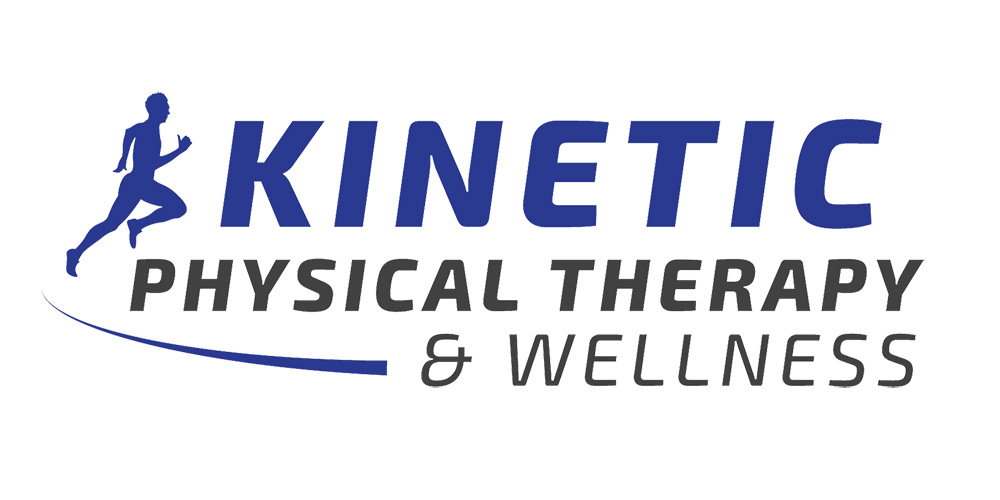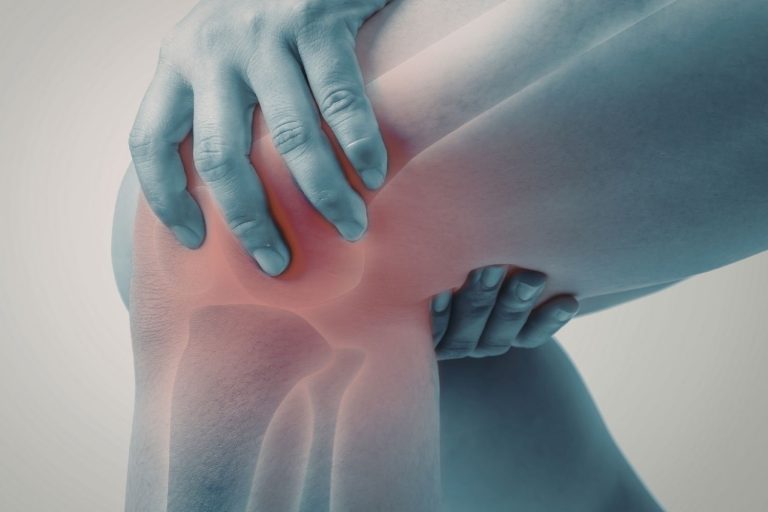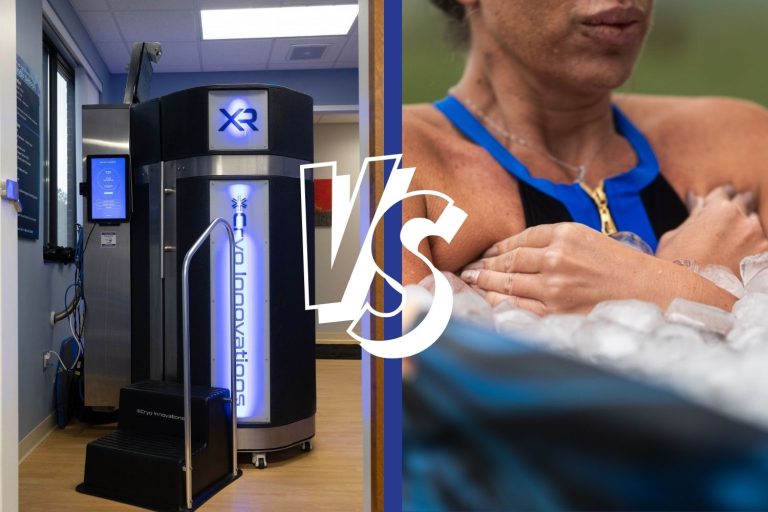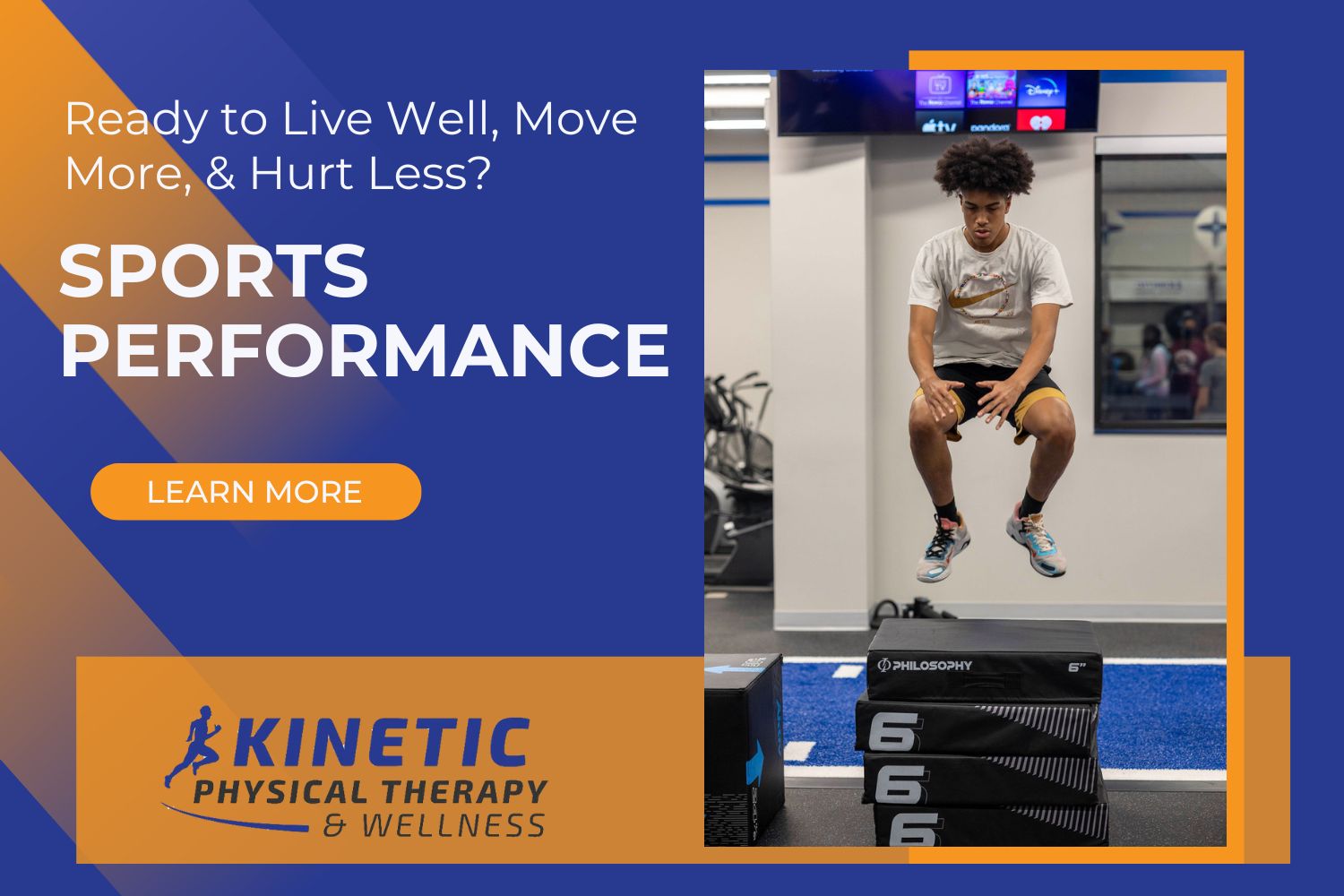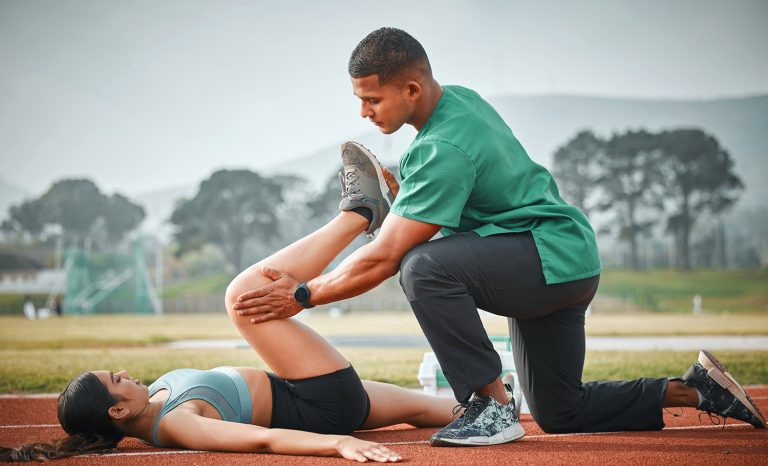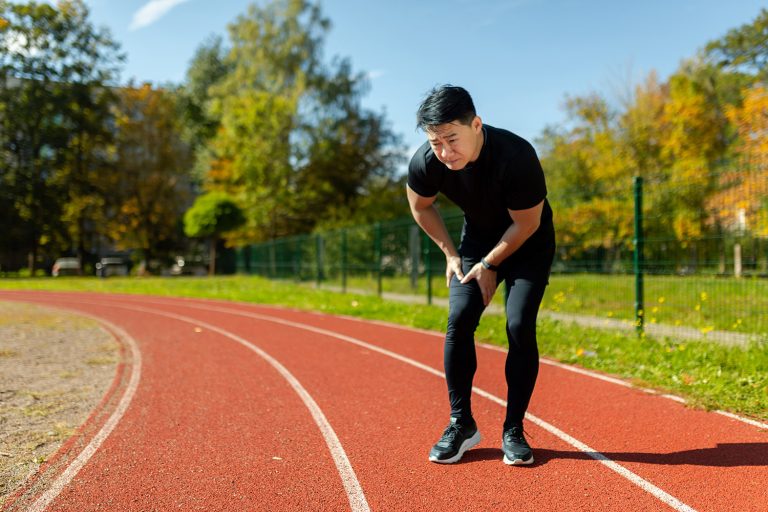
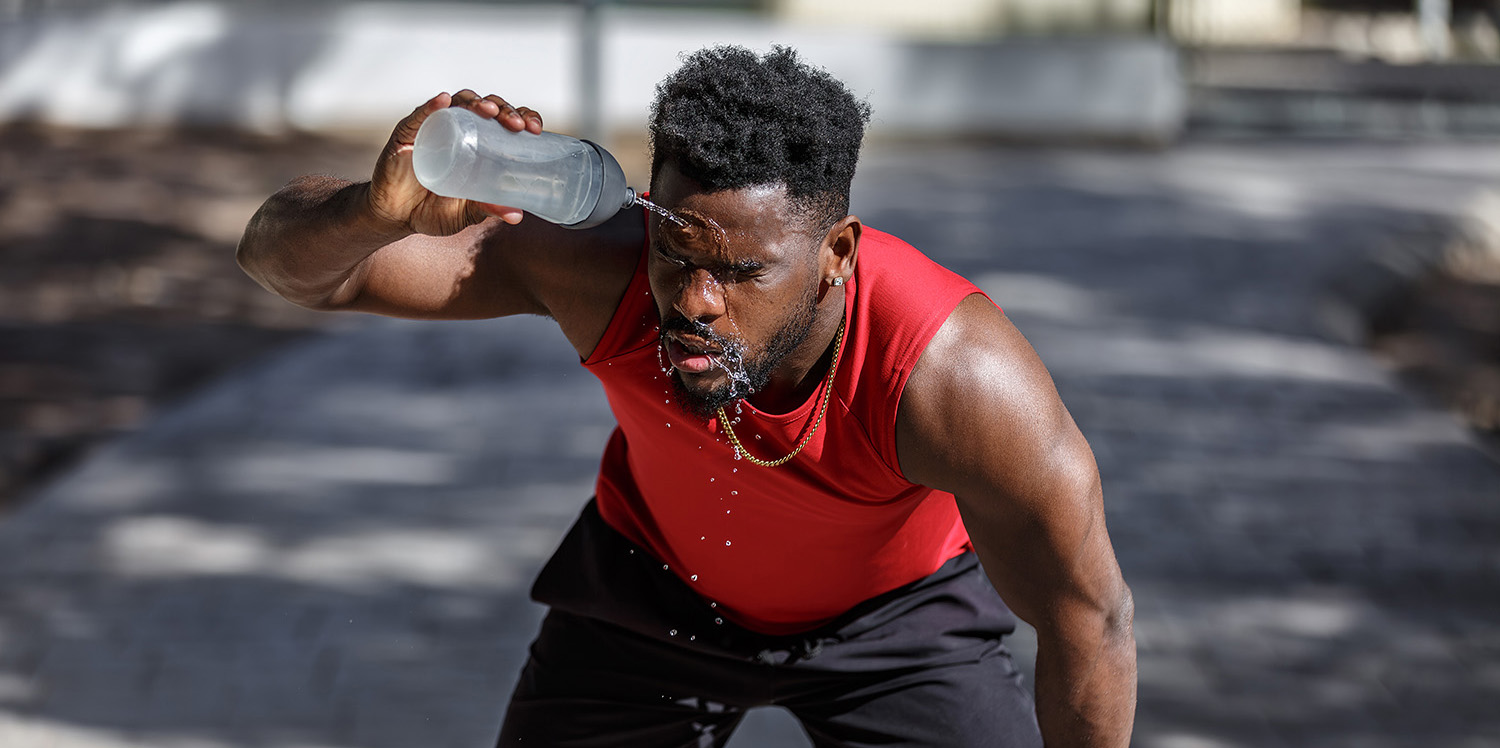
Athletic Training in the Heat
Tips for Safe, Effective Performance Workouts in Summer
Athletes often face unique challenges during the summer months, and athletic training in the heat is one of the most demanding conditions for the body. Hot and humid environments place extra stress on your cardiovascular system, increase the risk of dehydration, and can quickly lead to fatigue if not managed correctly. However, when approached with a smart strategy, athletic training in these conditions can improve endurance, mental toughness, and overall performance. At Kinetic Physical Therapy and Wellness, we work with athletes to adjust their sports performance plans for summer conditions so they can train hard, recover well, and stay safe.
The Science Behind Athletic Training in the Heat
The human body operates within a narrow temperature range, and athletic training in the heat pushes your thermoregulation systems to work overtime. When you exercise, your body produces heat as a byproduct of energy production. In hot conditions, sweating is the primary cooling mechanism, but this also accelerates fluid and electrolyte loss. Without adequate hydration, blood volume decreases, making it harder for your heart to pump oxygen-rich blood to working muscles. Over time, the body can adapt to heat through acclimatization, which improves sweating efficiency, lowers heart rate during exercise, and increases tolerance to hot environments. Incorporating these physiological adaptations into a sports performance plan helps athletes train more effectively year-round.
Preparing for Safe and Effective Hot-Weather Workouts
A key part of athletic training in the heat is preparation. Athletes should hydrate well before a workout, not just during. This means drinking water throughout the day, including electrolyte-rich fluids if training will be intense. Choosing light-colored, breathable, moisture-wicking clothing can help the body dissipate heat more efficiently. Pre-cooling techniques, such as using ice towels or cooling vests before a session, can also delay the onset of heat-related fatigue. We encourage athletes in our sports performance programs to schedule sessions during the cooler hours of the morning or evening to reduce environmental stress.
Adapting Your Athletic Training Plan for Hot Conditions
One of the safest ways to adapt to athletic training in the heat is through progressive acclimatization. This means gradually increasing the duration and intensity of workouts over 1–2 weeks to allow the body to adjust. Athletes may start with shorter, lighter workouts, then build toward full-intensity sessions. During this adaptation phase, close monitoring of heart rate, perceived exertion, and hydration status is essential. Our sports performance specialists ensure that heat acclimatization is individualized for each athlete’s sport and current fitness level.
Hydration and Fueling Strategies for Hot-Weather Athletic Training
When athletic training in the heat, hydration is more than just drinking water—it’s about maintaining electrolyte balance. Sodium, potassium, and magnesium play key roles in muscle function and fluid regulation. Athletes should consume electrolyte-enhanced drinks during longer sessions or when sweating heavily. In addition to fluids, fueling with easily digestible carbohydrates can help maintain energy levels and prevent performance drop-offs. Within our sports performance programs, hydration and nutrition strategies are tailored to each athlete’s needs, ensuring they have the stamina to perform without compromising health.
Recognizing the Warning Signs of Heat Stress
Even well-prepared athletes must be aware of the early signs of heat-related issues during athletic training in the heat. Symptoms like excessive fatigue, dizziness, nausea, confusion, or a rapid heart rate can indicate heat exhaustion or heat stroke—both of which require immediate action. Stopping activity, moving to a shaded or cool area, and hydrating immediately are critical steps. We teach our sports performance athletes to listen to their bodies and adjust their training as soon as warning signs appear.
Recovery Considerations After Athletic Training in the Heat
Recovery is even more important after athletic training in the heat. Post-workout hydration should include water and electrolyte replenishment, and athletes should consume a balanced meal with protein and carbohydrates within an hour to support muscle recovery. Cooling strategies like ice baths, cold showers, or simply resting in an air-conditioned space can help lower core body temperature faster. Sleep quality can also be affected by heat stress, so prioritizing rest and recovery is essential for consistent progress in sports performance.
The Mental Benefits of Training in the Heat
While athletic training in the heat can be physically taxing, it also develops mental resilience. Athletes who can push through challenging conditions often gain a psychological advantage over competitors who are less prepared for environmental stress. Overcoming the discomfort of hot-weather athletic training builds confidence, focus, and determination—qualities that translate directly to competition. Our sports performance programs incorporate mental conditioning alongside physical training to prepare athletes for all aspects of competition.
Integrating Heat Training into a Year-Round Plan
Training in the heat should be strategically integrated into a year-round athletic development plan. Summer provides an opportunity to work on endurance, acclimatization, and resilience, but it must be balanced with rest and recovery to avoid burnout. Periodization—planning athletic training cycles with varying intensity and focus—ensures athletes can peak at the right time while minimizing the risk of injury or overtraining. Our sports performance approach takes these seasonal factors into account, creating sustainable programs that yield consistent results.
Mastering Performance While Training in the Heat
Training in the heat presents challenges, but with the right preparation, strategy, and recovery practices, it can be a powerful tool for athletic development. By understanding how the body responds to hot conditions, adjusting workouts to match environmental demands, and prioritizing hydration and safety, athletes can train effectively all summer long. At Kinetic Physical Therapy and Wellness, we design individualized sports performance programs that help athletes harness the benefits of heat training while avoiding its risks. Contact us today to learn how to train smarter and perform better, no matter the temperature.
Ready to elevate your athletic performance? Unlock your full potential with the Sports Performance Program at Kinetic Physical Therapy and Wellness in Greenville, NC! Our expert trainers provide personalized, science-backed training designed to enhance your strength, speed, and agility. Whether you’re a seasoned athlete or just starting out, our program is tailored to help you achieve your specific goals and excel in your sport. Don’t just play—perform at your best! Sign up for our Sports Performance Program today and take your game to the next level!
Please Share
categories
Recent Posts

Athletic Training in the Heat
Tips for Safe, Effective Performance Workouts in Summer
Athletes often face unique challenges during the summer months, and athletic training in the heat is one of the most demanding conditions for the body. Hot and humid environments place extra stress on your cardiovascular system, increase the risk of dehydration, and can quickly lead to fatigue if not managed correctly. However, when approached with a smart strategy, athletic training in these conditions can improve endurance, mental toughness, and overall performance. At Kinetic Physical Therapy and Wellness, we work with athletes to adjust their sports performance plans for summer conditions so they can train hard, recover well, and stay safe.
The Science Behind Athletic Training in the Heat
The human body operates within a narrow temperature range, and athletic training in the heat pushes your thermoregulation systems to work overtime. When you exercise, your body produces heat as a byproduct of energy production. In hot conditions, sweating is the primary cooling mechanism, but this also accelerates fluid and electrolyte loss. Without adequate hydration, blood volume decreases, making it harder for your heart to pump oxygen-rich blood to working muscles. Over time, the body can adapt to heat through acclimatization, which improves sweating efficiency, lowers heart rate during exercise, and increases tolerance to hot environments. Incorporating these physiological adaptations into a sports performance plan helps athletes train more effectively year-round.
Preparing for Safe and Effective Hot-Weather Workouts
A key part of athletic training in the heat is preparation. Athletes should hydrate well before a workout, not just during. This means drinking water throughout the day, including electrolyte-rich fluids if training will be intense. Choosing light-colored, breathable, moisture-wicking clothing can help the body dissipate heat more efficiently. Pre-cooling techniques, such as using ice towels or cooling vests before a session, can also delay the onset of heat-related fatigue. We encourage athletes in our sports performance programs to schedule sessions during the cooler hours of the morning or evening to reduce environmental stress.
Adapting Your Athletic Training Plan for Hot Conditions
One of the safest ways to adapt to athletic training in the heat is through progressive acclimatization. This means gradually increasing the duration and intensity of workouts over 1–2 weeks to allow the body to adjust. Athletes may start with shorter, lighter workouts, then build toward full-intensity sessions. During this adaptation phase, close monitoring of heart rate, perceived exertion, and hydration status is essential. Our sports performance specialists ensure that heat acclimatization is individualized for each athlete’s sport and current fitness level.
Hydration and Fueling Strategies for Hot-Weather Athletic Training
When athletic training in the heat, hydration is more than just drinking water—it’s about maintaining electrolyte balance. Sodium, potassium, and magnesium play key roles in muscle function and fluid regulation. Athletes should consume electrolyte-enhanced drinks during longer sessions or when sweating heavily. In addition to fluids, fueling with easily digestible carbohydrates can help maintain energy levels and prevent performance drop-offs. Within our sports performance programs, hydration and nutrition strategies are tailored to each athlete’s needs, ensuring they have the stamina to perform without compromising health.
Recognizing the Warning Signs of Heat Stress
Even well-prepared athletes must be aware of the early signs of heat-related issues during athletic training in the heat. Symptoms like excessive fatigue, dizziness, nausea, confusion, or a rapid heart rate can indicate heat exhaustion or heat stroke—both of which require immediate action. Stopping activity, moving to a shaded or cool area, and hydrating immediately are critical steps. We teach our sports performance athletes to listen to their bodies and adjust their training as soon as warning signs appear.
Recovery Considerations After Athletic Training in the Heat
Recovery is even more important after athletic training in the heat. Post-workout hydration should include water and electrolyte replenishment, and athletes should consume a balanced meal with protein and carbohydrates within an hour to support muscle recovery. Cooling strategies like ice baths, cold showers, or simply resting in an air-conditioned space can help lower core body temperature faster. Sleep quality can also be affected by heat stress, so prioritizing rest and recovery is essential for consistent progress in sports performance.
The Mental Benefits of Training in the Heat
While athletic training in the heat can be physically taxing, it also develops mental resilience. Athletes who can push through challenging conditions often gain a psychological advantage over competitors who are less prepared for environmental stress. Overcoming the discomfort of hot-weather athletic training builds confidence, focus, and determination—qualities that translate directly to competition. Our sports performance programs incorporate mental conditioning alongside physical training to prepare athletes for all aspects of competition.
Integrating Heat Training into a Year-Round Plan
Training in the heat should be strategically integrated into a year-round athletic development plan. Summer provides an opportunity to work on endurance, acclimatization, and resilience, but it must be balanced with rest and recovery to avoid burnout. Periodization—planning athletic training cycles with varying intensity and focus—ensures athletes can peak at the right time while minimizing the risk of injury or overtraining. Our sports performance approach takes these seasonal factors into account, creating sustainable programs that yield consistent results.
Mastering Performance While Training in the Heat
Training in the heat presents challenges, but with the right preparation, strategy, and recovery practices, it can be a powerful tool for athletic development. By understanding how the body responds to hot conditions, adjusting workouts to match environmental demands, and prioritizing hydration and safety, athletes can train effectively all summer long. At Kinetic Physical Therapy and Wellness, we design individualized sports performance programs that help athletes harness the benefits of heat training while avoiding its risks. Contact us today to learn how to train smarter and perform better, no matter the temperature.
Ready to elevate your athletic performance? Unlock your full potential with the Sports Performance Program at Kinetic Physical Therapy and Wellness in Greenville, NC! Our expert trainers provide personalized, science-backed training designed to enhance your strength, speed, and agility. Whether you’re a seasoned athlete or just starting out, our program is tailored to help you achieve your specific goals and excel in your sport. Don’t just play—perform at your best! Sign up for our Sports Performance Program today and take your game to the next level!
Please Share
